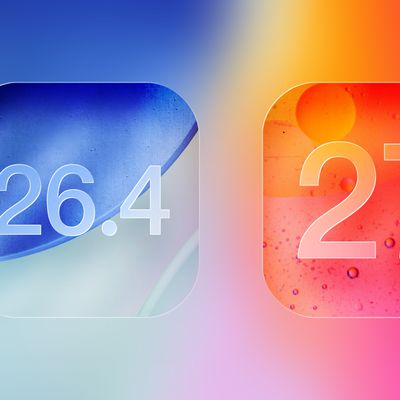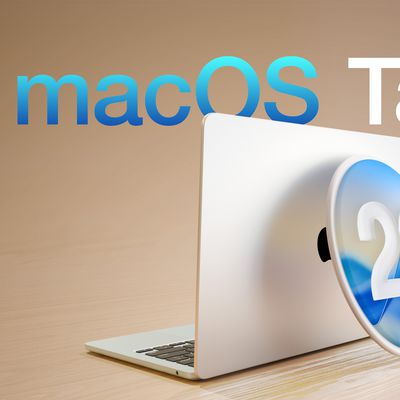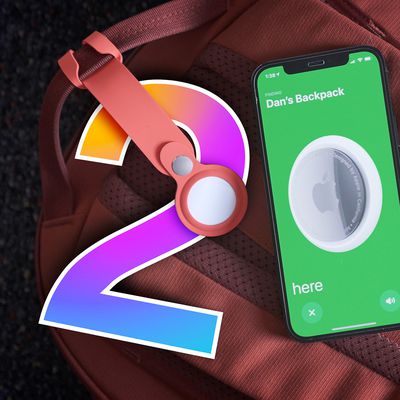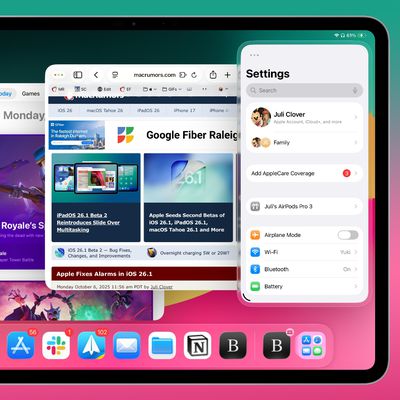On Monday, May 3 Apple and Epic will meet in court as their bench trial kicks off over the dispute that Epic started last summer by defying the App Store in-app purchase rules.
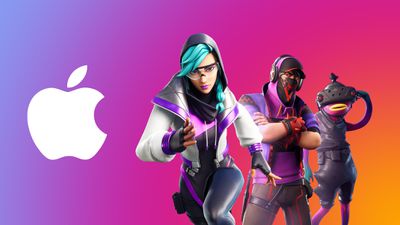
In preparation for the legal battle, Apple today filed the written testimonies of its witnesses with the court, and if approved, it serves the same function as actual trial testimony, providing insight into the arguments that Apple will make. The expert testimony includes several professors with expertise in law, economics, marketing, computer security, and antitrust.
The witnesses will rebut claims made by Epic's witnesses, and will argue the merits of the App Store rules and policies for consumers. University of Pennsylvania Professor in Operations, Information and Decisions Lorin Hitt, for example, calculated Apple's digital game transaction market share to argue that Apple doesn't have a monopoly and to point out that Apple's fees are the same as other game transaction platforms.
My market share calculations support the conclusion that Apple does not have market or monopoly power in a properly defined market. Apple's share of the digital game transaction market lies between 23.3% and 37.5%. In light of my conservative approach, these market share estimates, especially at the high end, are likely to overstate Apple's true market share and are, in any event, inconsistent with Apple having substantial market power. The entry of new game transaction platforms is also inconsistent with Apple having market power.
University of Michigan Professor of Economics Dean Francine Lafontaine points to Safari as an alternative to in-app purchases that some developers use, though it's worth noting that Apple does not generally allow developers to advertise payment methods outside of the App Store, so developers like Epic would need to make customers aware of the option outside of the app.
Even the rare consumer who has access to only an iOS device has a readily available game transaction alternative to the App Store--the Safari browser. For example, any Fortnite player can use Safari (or Chrome) to purchase Fortnite's in-game currency, 'V-Bucks,' a transaction that generates no commission for Apple.
A survey conducted by UCLA Professor of Marketing Dominique Hanssens argues that Apple does not have a monopoly in the gaming market because most iPhone and iPad users regularly use other devices that can access digital gaming content like consoles.
Results of my first survey show that 92 percent of respondents who downloaded apps from the App Store had regularly used at least one other type of device (i.e., devices other than iPhones and iPads) with which they could access digital gaming content, in the last 12 months. Further, 99 percent of respondents in the first survey had regularly used or could have regularly used at least one other type of device (i.e., devices other than iPhones and iPads) with which they could access digital gaming content, in the last 12 months.
On the topic of security, Johns Hopkins University Information Security Institute technical director Aviel Rubin will cover the importance of the App Store review process when it comes to security. Epic will likely argue that the App Store is not as secure as Apple says it is, pointing to scam apps and malware that slip through the review process as it aims to convince the court that third-party app distribution methods are needed.
The introduction of third-party app stores for iOS would decrease iOS security, safety, and trustworthiness, as evidenced by the cases of Google and statistics indicating that third- party app stores host 99.9% of discovered mobile malware... Irrespective of whether they would be able to or intend to achieve the same security goals, the reality is that they could not. Moreover, there is no guarantee that all, or even most, third-party app stores would commit to upholding user security and privacy and intend to achieve such security goals, particularly if those standards come at the expense of efficiency and revenue.
The filings are limited to Apple's expert witnesses and do not include topics that will be covered by Apple executives during the trial. Apple CEO Tim Cook, Apple Fellow Phil Schiller, and Apple software engineering chief Craig Federighi will all testify in person in the Northern California court.
Epic will likely share its own expert witness testimony at some point ahead of when the trial begins. Epic also has an interesting witness list, which will include Epic Games CEO Tim Sweeney and other Epic employees along with iTunes chief Eddy Cue and former iOS software chief Scott Forstall. Both companies will also call executives from other companies like Facebook and Microsoft.
Apple's witness statements are below for those who would like to see them in their entirety to get a better idea of how Apple plans to defend itself against Epic next week.


